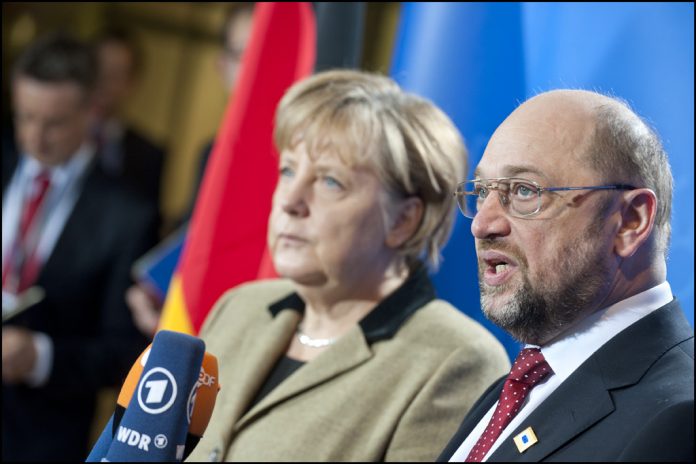Germany is still without a new government and it’s been more than three months after the general election. But German Chancellor Angela Merkel says she is hopeful that fresh coalition talks will end in the formation of a stable coalition.
Merkel’s Christian Democrats (CDU), its sister party the Christian Social Union (CSU), and the Social Democrats (SPD) launched talks on January 7.
“I believe the talks can succeed,” Merkel said as she arrived at the SPD headquarters in Berlin.
“I’m going into these talks with optimism, indeed it’s clear that in these few days we have a huge amount of work ahead of us, but we’re willing to take on this work and achieve a good outcome,” she added.
As reported by the BBC, the centre-left SPD has governed jointly with the chancellor’s centre-right party for eight of the last 12 years. But, after a historically poor poll result in September, SPD leader Martin Schulz had vowed to take his party into opposition.
Pressure has mounted on the SPD since November, when Merkel failed to cobble together a coalition with the liberal FDP and the Greens.
However, according to one opinion poll on January 7, one in three voters thought the talks would fail, although 54% said a revived “grand coalition” of the big parties would be positive for Germany.
Immigration, Europe, tax, and healthcare could all become points of contention.
According to the BBC, the parties have agreed to a media blackout during the talks, which will finish on January 11.
In related news, Deutsche Welle (DW), Germany’s international broadcaster, noted that Schulz’s decision to ultimately agree to launch preliminary talks with the conservative Union parties marks a major U-turn for the SPD leader. After picking up a historically low 20.5% share of the vote in September, Schulz insisted his party would not enter into another four-year alliance with Merkel.
However, the prospect of another four-year Merkel alliance has raised major concerns among the SPD’s rank and file that the party could suffer even greater voter loss.
Ahead of the talks, Schulz has focused heavily on three policies that are problematic for the CDU and especially their Bavarian Christian Social Union (CSU) allies: compulsory state health insurance for all, realizing a more “United States of Europe” and allowing the family members of refugees to join them in Germany.

